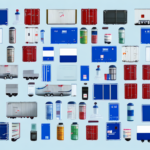Understanding Recession-Proof Businesses and Products
Recession-proof businesses and products maintain consistent demand regardless of economic fluctuations. These enterprises not only survive during downturns but often thrive as consumers focus on essentials. Key sectors typically considered recession-proof include healthcare, education, utilities, and government services. For instance, the healthcare industry remains robust as medical services are always in demand, even during economic hardships.
Key Traits and Strategies of Recession-Proof Businesses
Common Traits of Resilient Businesses
Recession-proof businesses generally share several characteristics:
- Low Overhead Costs: Minimizing fixed expenses allows businesses to remain agile during economic downturns.
- Diversified Revenue Streams: Multiple income sources reduce dependency on a single market segment.
- Strong Customer Base: Loyal customers ensure steady revenue streams even in tough times.
Adaptability and Innovation
The ability to pivot and innovate is crucial for resilience. Businesses that quickly adjust their offerings to meet changing consumer needs can capture new opportunities. For example, during the COVID-19 pandemic, many restaurants expanded their services to include delivery and takeout options, ensuring continued revenue.
Employee Retention and Company Culture
Investing in employees through competitive salaries, benefits, and professional development fosters loyalty and reduces turnover. A motivated workforce contributes to higher productivity and helps businesses navigate economic challenges effectively.
Proven Business Models and Historical Insights
Resilient Business Models
Certain business models have demonstrated resilience during economic downturns:
- Subscription Services: Provide consistent cash flow through recurring payments.
- Franchise Models: Offer stability with a proven business framework and support systems.
- Essential Services: Cater to basic human needs, ensuring steady demand.
Historical Trends and Examples
Historical data shows that sectors like food, healthcare, and transportation remain robust during recessions. For example, during the 2008 financial crisis, essential service providers maintained their market presence, whereas luxury goods companies faced significant declines.
Market Research and Identifying Opportunities
Conducting Effective Market Research
Thorough market research helps entrepreneurs identify resilient market segments and consumer behavior patterns. Utilizing tools like Statista and IBISWorld can provide valuable insights into industry trends and opportunities.
Identifying Resilient Products and Services
Analyzing consumer needs during economic downturns reveals opportunities for growth. Sectors such as online education, telehealth services, and budget-friendly meal delivery have shown increased demand during recent recessions.
Practical Steps to Build a Recession-Proof Business
Managing Cash Flow
Effective cash flow management is vital. Strategies include:
- Monitoring Expenses: Regularly track and control operational costs.
- Negotiating with Suppliers: Secure favorable terms to reduce costs.
- Maintaining Cash Reserves: Ensure availability of funds to handle unexpected expenses.
Building Strong Customer Relationships
Fostering loyalty through excellent customer service, personalized communication, and loyalty programs can sustain revenue during economic downturns. Engaging with customers on platforms like LinkedIn and Facebook helps maintain strong connections.
Adapting Marketing Strategies
Adjusting marketing tactics to focus on value and necessity can attract budget-conscious consumers. Utilizing digital marketing channels such as Google Analytics and Twitter Ads allows for targeted and cost-effective campaigns.
Learning from the COVID-19 Pandemic
Lessons Learned
The COVID-19 pandemic highlighted the importance of flexibility and digital transformation. Businesses that swiftly transitioned to online platforms and remote operations were better positioned to survive and thrive.
Best Practices Implemented
Key strategies adopted during the pandemic include:
- Embracing E-commerce: Expanding online sales channels to reach a broader audience.
- Implementing Health and Safety Protocols: Ensuring employee and customer safety to maintain trust.
- Leveraging Technology: Utilizing tools for remote work, collaboration, and customer engagement.
Conclusion
Creating a recession-proof business involves understanding essential market dynamics, adopting resilient business models, and implementing strategic practices. By conducting thorough market research, managing cash flow effectively, and fostering strong customer relationships, entrepreneurs can build businesses that withstand economic challenges. Additionally, learning from recent global events, such as the COVID-19 pandemic, provides valuable insights into maintaining flexibility and embracing innovation. Staying informed about economic trends and continuously adapting strategies will position businesses for sustained success, even in uncertain economic climates.






















